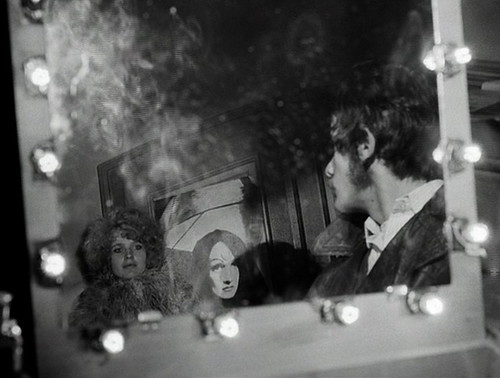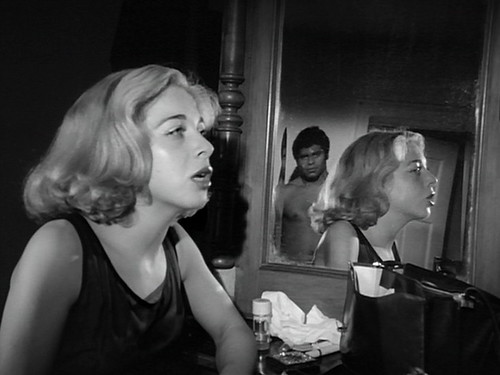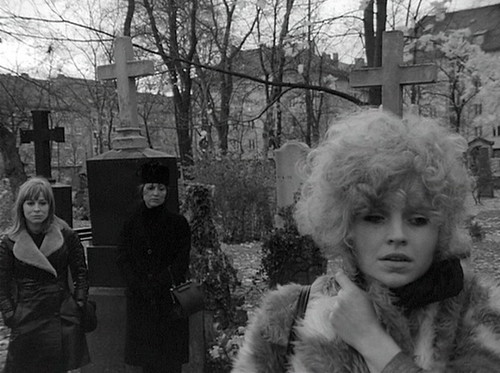Gods of the Plague (RW Fassbinder, 1970)
 With Gods of the Plague, RW Fassbinder's sequel to his Love is Colder Than Death, the director showed that he was more than a master storyteller and atmospheric director; this is one of the first (chronologically) Fassbinder films that is absolutely gorgeous. I'm sure you could pause the film at almost any moment and have a still that's worthy of any photography exhibition.  Franz is out of jail, but instead of returning to his life with Joanna, he hooks up with a beautiful young waitress he met in a cafe and goes back into a life in petty crime. Although Joanna (Hannah Schygulla, luminous as always in Fassbinder films) is the scorned lover, it's hard to feel any sympathy for her, because Franz does not try to deceive her about their relationship, yet she actively tries to destroy him anyway. The cast of petty thieves and gamblers that populate the film are at once repulsive and compelling, such is Fassbinder's gift at portraying the lower class of criminal.  But Gods of the Plague is so much more than just its plot. Every scene is a tableau of sorts, a visual playing field from which Fassbinder seems to take inspiration for the plot actions. Characters sit around in silence, walk around, stare at nothing for extended periods of time -- so much, in fact, that it seems the term ennui was derived from these aimless characters. But, as in the first scene, where Franz walks in front of a brick wall after leaving jail, it's almost hypnotic. There's nothing not visually stunning (in its own quiet way) in this film.  Gunther Kaufman, playing a fried of Franz's with whom he goes back into crime, has a beautiful line near the end of the film, as things are going totally wrong: "Life is precious, even right now." This could be the final line in every Fassbinder film; his recurring theme about the importance of even the smallest, pettiest life perhaps began in this film. Reccommended for those at all interested in Fassbinder's films.  8/10 Labels: 1970, rainer werner fassbinder |


